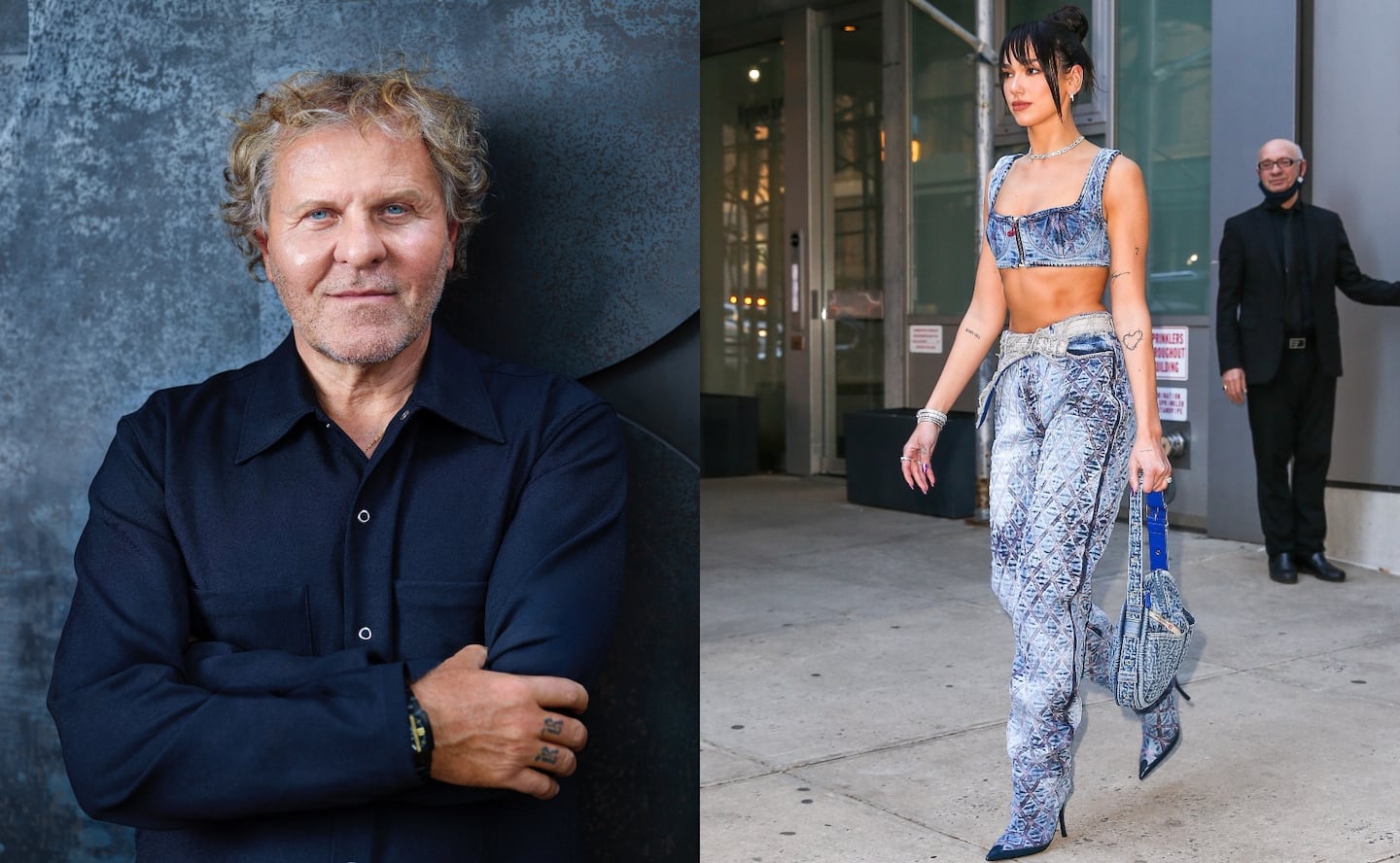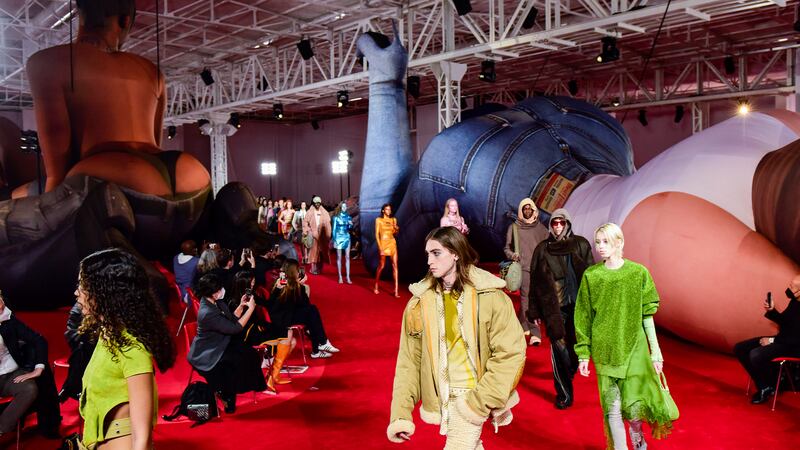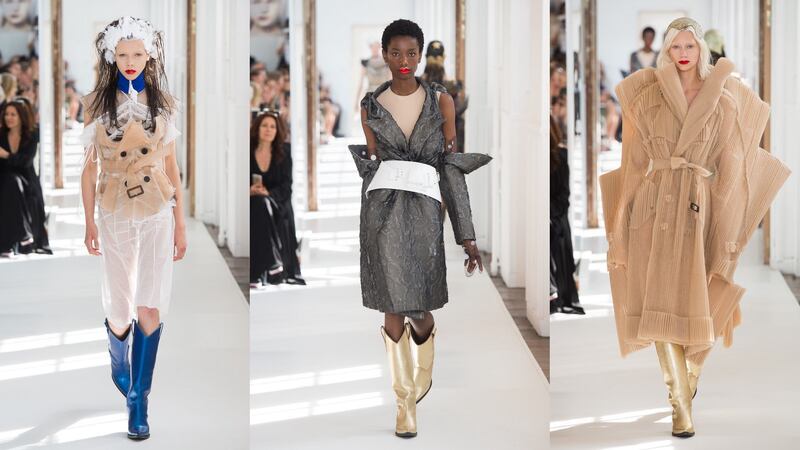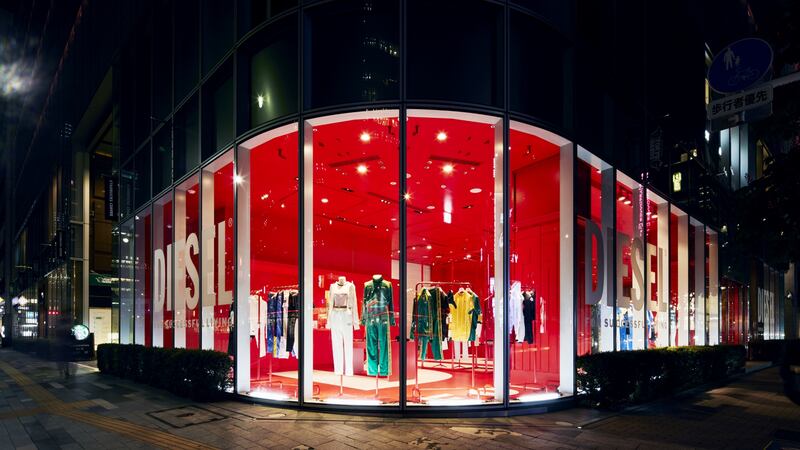
The Business of Fashion
Agenda-setting intelligence, analysis and advice for the global fashion community.

Agenda-setting intelligence, analysis and advice for the global fashion community.

MILAN — After 44 years in business, OTB chairman Renzo Rosso is having a moment.
The Italian group’s flagship label Diesel is back in the fashion conversation amid a revamp by creative director Glenn Martens, who has overhauled its product offer and brought back the cheeky, transgressive marketing sensibility of the brand’s late ‘90s heyday.
Meanwhile, OTB’s prestigious but once volatile Maison Margiela label has been delivering steady growth, doubling turnover in 3 years, and its most recent acquisition, Jil Sander, has returned to profitability after reporting losses of €17.8 million ($21.22 million) in the last fiscal year under its previous owner, Onward.
In recent years, OTB has also taken a 20 percent stake in hot Los Angeles label Amiri and inked deals to distribute the brand in Asia. Even small Milanese house Marni appears to be accelerating.
ADVERTISEMENT
With the group finally firing on all cylinders, OTB is targeting an initial public offering within 3 years, as well as eyeing bigger, transformative acquisitions to cement its shift to luxury.
“It needs to be something big or else it doesn’t make sense,” Rosso said in an interview at the Diesel showroom in Milan. “The banks are supporting me. They’re saying, ’Dream, Renzo!’”
While Rosso said most of the assets he’s interested in (like the buzzy, digitally-savvy Paris house Jacquemus) aren’t for sale, he’s keeping an eye on creative, recognisable labels with a strong point-of-view, rattling off a “brands to watch” list that ranges from well-established Rick Owens — known for its distinctive brand of gothic glamour — to newcomer Casablanca, whose laid-back, sunny vision of luxury has gained traction in recent seasons.
The hunt for acquisitions and renewed plans to go public come as Rosso looks for ways to leverage OTB’s momentum and create a durable, Italian alternative to big French fashion conglomerates LVMH and Kering, which have been gobbling up market share in recent years as well as adding many of Italy’s most iconic brands to their stables.
OTB reported 2021 net sales of €1.5 billion ($1.71 billion), up 18 percent compared to 2020 and roughly in line with 2019 levels.
That’s just a fraction of Gucci-owner Kering or Louis Vuitton-parent LVMH’s fashion division, and still half the size of independent Italian giants like Prada or Armani. But Rosso has nonetheless won a seat at the table in fashion by sticking with a multi-brand approach that’s unique on the Italian scene (where fashion entrepreneurs rarely build beyond their original labels) and by backing brands and designers with cult appeal.

Riding a windfall from his original brand Diesel, which exploded during the premium denim boom in the late ‘90s and early 2000s, he’s snapped up creative labels whose small scale and focus on ready-to-wear makes them a poor fit for the giant groups, but for whom stable financing and a bit of support on production and distribution can tip the scales to turn them into sustainable businesses.
“I want OTB to be the group with soul, with only really special brands,” Rosso said. “I can’t compete with the French groups financially. But I can do something that’s special, alternative.”
ADVERTISEMENT
Becoming an ‘Alternative’ Fashion Mogul
Recent years have seen Rosso flex his influence in the luxury space, joining the LVMH-backed Aura Blockchain commission as a founding member alongside giants like Cartier and Prada, and leading a commission to support the “Made in Italy” supply chain for industry lobby Confindustria. But his place in Italy’s business and fashion community has been hard won.
A self-made billionaire who was born on a farm in the Veneto region, where his company is still based, Rosso abandoned his studies to work in a denim factory before founding Diesel. His rock-and-roll look (complete with tight leather bombers, tattoos and pointy boots) and profanity-laden speech make him an outlier among Italian fashion’s aristocracy, where contemporaries like Gildo Zegna and Miuccia Prada are third-generation leaders of the companies that bear their family names.
Rosso initially struggled to find his footing in the luxury space: when he bought Maison Martin Margiela in 2002, the secretive, conceptual label was one of Paris’ most prestigious names, but hardly a hit factory. It took years to establish stable commercial lines like Replica sneakers and four-stitch knitwear for customers looking to participate in the Margiela mystique through wearable items.
A 2014 move to hire star couturier John Galliano demonstrated both Rosso’s opportunism — no one else would touch Galliano, who had been ousted from Dior 4 years earlier for a substance-fuelled anti-Semitic rant — as well as signalling the scale of his ambitions.
The bet paid off, as the mix of Galliano’s haute vision with the insider appeal of Margiela’s understated commercial lines helped sales boom. Margiela was one of the few brands in the sector to grow during 2020, and turnover grew another 25 percent to over €400 million last year. Despite fading from view somewhat since the pandemic (as Galliano took a long hiatus from staging runway shows), Margiela is set to return to the fashion week calendar in July.
Rosso has also underscored his support for designers by tapping Francesco Risso — then an unknown deputy in Prada’s studio — to succeed founder Consuelo Castiglione at Milan-based Marni in 2016.
The designer’s DIY, art school-inflected vision for Marni took years to take off commercially, but Rosso earned good will among fashion’s creative community for providing a rare platform for a young talent in Milan, whose fashion week has historically been packed with fusty brands.
ADVERTISEMENT

“Renzo is putting out energy not only for himself but for the whole system,” said Carlo Capasa, the president of Camera Della Moda, the trade group that organises Milan Fashion Week (Rosso is a member of the group’s steering committee).
A move to add Jil Sander, a bastion of minimalist design founded in the late 1960s, to his stable of brands last year has further expanded Rosso’s influence in the luxury space. OTB hopes the label can push even further upmarket.
“I want Jil Sander to be the most luxurious Italian brand,” he said. “There’s not a single square metre of leather they use there [since the OTB takeover] that costs less than $100.”
(That Jil Sander, which sells $1,300 jersey dresses and $1,000 polo shirts would raise its prices any further may come as a surprise. “I see high prices more as a hindrance than as an opportunity for this brand,” said Tiffany Hsu, buying director at MyTheresa.)
Rosso’s multi-brand approach is rare in the Italian market, where most entrepreneurs have struggled to transcend their original label or embrace M&A. That’s allowed French groups to benefit from a virtuous cycle of economies of scale and higher levels of investment season after season. Alongside Moncler’s Remo Ruffini, whose company bought rival Stone Island last year, he’s found himself in the spotlight amid a wave of speculation that more of Italy’s independent brands would finally band together. (Ruffini has since told investors he plans to buy no additional brands.)
Rosso has also broadened his influence through his approach to manufacturing: OTB leveraged Diesel’s volumes to build an apparel supply chain that produces creative items at prices that are luxurious, but still saleable, at a time when many rival brands’ ready-to-wear has become far too expensive to drive volumes. His manufacturing arm, Staff International, also produces apparel for brands outside the group.
Diesel’s Turnaround Remains Pivotal
But even as his profile mounts, Rosso’s plans to fly even closer to the sun — with bigger acquisitions and an IPO in the works — still hinge on landing a turnaround at Diesel, which remains the engine of the OTB group.
OTB’s revenues remained broadly flat throughout the 2010s as the expansion into luxury failed to offset falling sales at Diesel, which progressively lost its edge and succumbed to rampant discounting.
Now, Diesel is enjoying more buzz than it has in years under a new creative director, Glenn Martens, who brings a sharp eye for pattern-making and silhouettes (especially key in denim, which sticks to a limited palette of materials) and an underground, ironic sensibility.
In February, Martens’ staged a memorable debut show featuring jean jackets dipped in resin and distressed by lasers, short denim crop-tops and low-rise trousers, with models parading around giant inflatable sculptures of jeans-wearing figures in provocative poses. Recent months have seen style-setters like Julia Fox, Rihanna and Dua Lipa all sporting his items including jean boots, jean-jersey tops, and neon minibags featuring the brand’s new oversized D logo.
The brand also burnished its cultural credibility by partnering with an iconic collection of queer ironic art, the Tom of Finland Foundation, staging co-branded exhibitions at the Venice Biennale and outside Paris.
This month, the brand also added a line of workout clothes styled with Marten’s signature off-kilter spin.

Diesel is retooling its distribution, too: Rosso says the business has cut out €400 million worth of turnover from low-level wholesalers in recent years in a bid to elevate the brand. The label has started to move stores to more fashionable adjacencies, opening a new Soho flagship in New York on the same block as Alexander McQueen, Saint Laurent and Amiri. It also staged a pop-up activation in Tokyo’s posh Ginza district.
Revamping its multi-brand business could prove a challenge, as most of the brand’s sprawling high-street store footprint is still not aligned with the exclusive sheen being cultivated by some luxury retailers.
“Glenn has brought a really cool element back to Diesel,” MyTheresa’s Hsu said, explaining that it was still not stocking the brand. “But the brand had over-extended itself, and become a bit uncool ... In a lot of people’s heads Diesel is still that.”
“In some department stores we still don’t have the right neighbours. And to get with the right neighbours, we need the right positioning,” Rosso said. It’s a bit of a Catch-22.
But the strong reception for Glenn’s designs could conspire with a much-hyped “vibe shift” that’s seen early 2000s aesthetics surge to help Diesel get back on top — as well as making Rosso’s renewed ambitions possible. A handful of trendsetting multi-brand stores like Antonia, LuisaViaRoma, and the Webster are already responding positively, Rosso said.
This week, Prada and Miu Miu reported strong sales as LVMH slowed and Kering retreated sharply. In fashion’s so-called “quiet luxury” moment, consumers may care less about whether products have logos and more about what those logos stand for.
The luxury goods maker is seeking pricing harmonisation across the globe, and adjusts prices in different markets to ensure that the company is”fair to all [its] clients everywhere,” CEO Leena Nair said.
Hermes saw Chinese buyers snap up its luxury products as the Kelly bag maker showed its resilience amid a broader slowdown in demand for the sector.
The group’s flagship Prada brand grew more slowly but remained resilient in the face of a sector-wide slowdown, with retail sales up 7 percent.